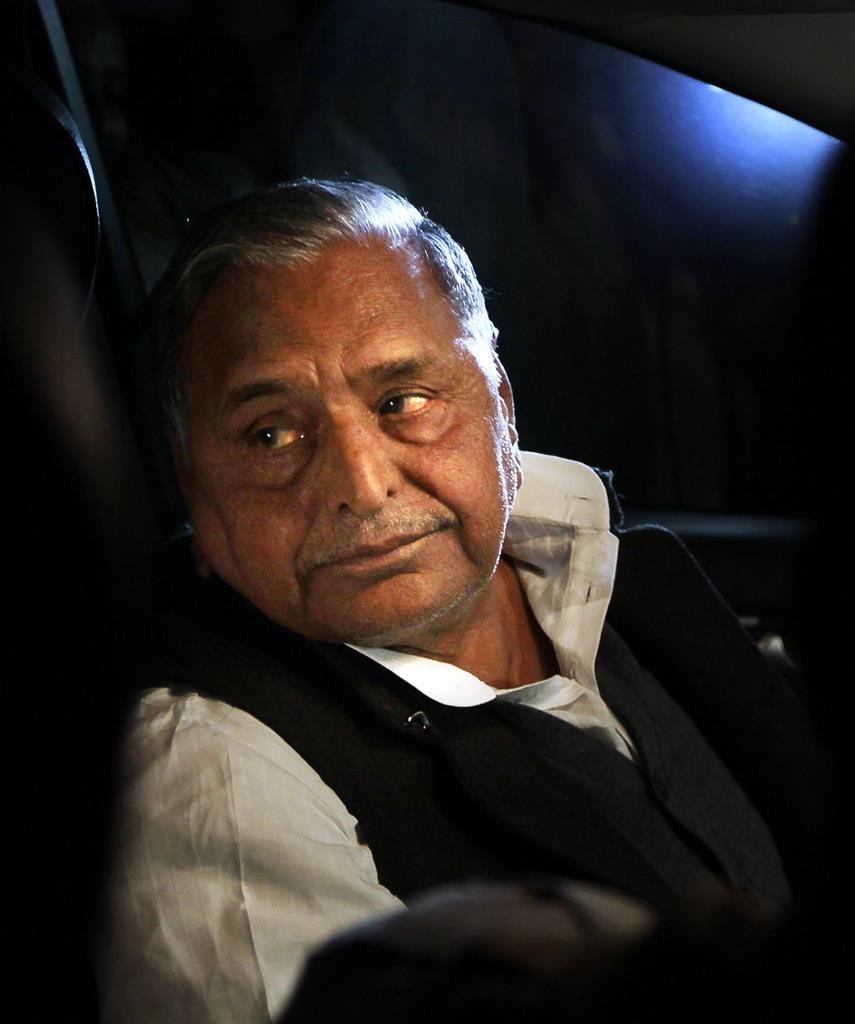NEW DELHI (AP) — Mulayam Singh Yadav, India’s former defense minister and a veteran socialist leader, died in a hospital Monday after a prolonged illness. He was 82.
Yadav was admitted to a private hospital near Delhi for more than two weeks before his death was announced by his son Akhilesh Yadav, the political heir to his Samajwadi Party that holds sway in India’s largest state of Uttar Pradesh.
“My respected father and everyone’s leader is no more,” he tweeted.
Prime Minister Narendra Modi called Yadav “a humble and grounded leader who was sensitive to people’s problems.”
“As Defence Minister, he worked for a stronger India,” Modi tweeted.
Yadav, a three-time chief minister of India’s most populous Uttar Pradesh state, was a former wrestler who rose in politics in the 1980s when a federally appointed commission set up to identify the “socially backward classes” in the country led to a nationwide agitation. It was during these protests Yadav emerged as a socialist leader by defending the demands of the so-called backward castes and religious minorities.
In 1990, when Yadav was Uttar Pradesh state's chief minister, he ordered police firing on Hindu protesters in the northern Ayodhya city when they were marching towards the 16th-century Babri mosque to reclaim it as a grand temple for the Hindu god Ram. At least 16 people were killed in police action.
When the mosque was eventually razed to the ground by Hindu mobs in 1992, sparking massive communal violence across India, Muslims credited Yadav for having saved it two years before. The community became his party’s major voting bloc.
A year later, he became the state’s chief minister for the second time after stitching an alliance with a regional party after Modi’s Bharatiya Janata Party was gaining ground on the back of Hindu nationalism.
In 1996, Yadav rose to national prominence when he became India’s defense minister in a United Front coalition government.
In his long career, Yadav was known to have allies on all sides of the political spectrum and was often projected as a candidate for the job of India’s prime minister.
Even though he never came close to becoming the prime minister, his party remained a major partner to many coalition governments, as Uttar Pradesh sends the highest number of lawmakers to the lower house of India’s parliament.
In 2012, Yadav handed the charge of his political party to his son, who became the state’s chief minister for five years.
In 2017, his party was ousted from power after Modi’s Bharatiya Janata Party won the elections and named Hindu nationalist Yogi Adityanath as the state’s chief minister, a feat he repeated earlier this year.
The Associated Press



